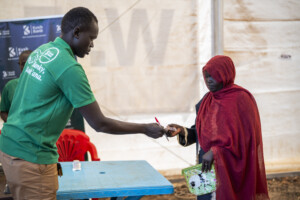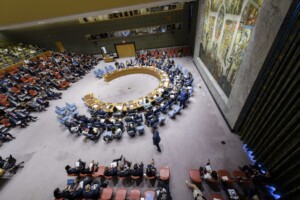40,000 tons of wheat underway to Sudanese mills
On Friday, Sudan’s Finance Minister announced that about 40,000 tons of wheat were being transported to various mills.
Minister Ibrahim El Badawi said that the first shipment of wheat bought from abroad with support from the World Food Programme (WFP) in Sudan, was offloaded in Port Sudan on Thursday. “The wheat is on its way to the mills.”
 Flour silos of the Sayga company (pommer-spezialbetonbau.de).
Flour silos of the Sayga company (pommer-spezialbetonbau.de).
On Friday, Sudan’s Finance Minister announced that about 40,000 tons of wheat were being transported to various mills.
Minister Ibrahim El Badawi said that the first shipment of wheat bought from abroad with support from the World Food Programme (WFP) in Sudan, was offloaded in Port Sudan on Thursday. “The wheat is on its way to the mills.”
On April 17, Radio Dabanga reported that WFP Sudan signed an agreement with the Ministry to import 200,000 tons of wheat, which is equivalent to about 10 per cent of the country’s required wheat import for 2020.
The government will repay WFP in Sudanese pounds, which will enable the Central Bank of Sudan to retain more than $50 million in hard currency needed for the import of other strategic commodities.
Limited foreign exchange for fuel imports has led to rationing, persistent shortages, and disruptions to electricity and food supplies.
For import-dependent crops like wheat, maize, and rice, Sudan usually imports around 70 to 80 per cent of the amount as local production is below the national demand and consumption.
The wheat production this year is about 25 per cent of the country’s total use of wheat (2.9 million tonnes). This indicates that Khartoum needs to import about 2.2 million tonnes of wheat this year.
Badawi stated that his Ministry has applied for the purchase of a second shipment of 40,000 tons in local currency, which should arrive at the end of this month.
Radio Dabanga’s editorial independence means that we can continue to provide factual updates about political developments to Sudanese and international actors, educate people about how to avoid outbreaks of infectious diseases, and provide a window to the world for those in all corners of Sudan. Support Radio Dabanga for as little as €2.50, the equivalent of a cup of coffee.










 and then
and then